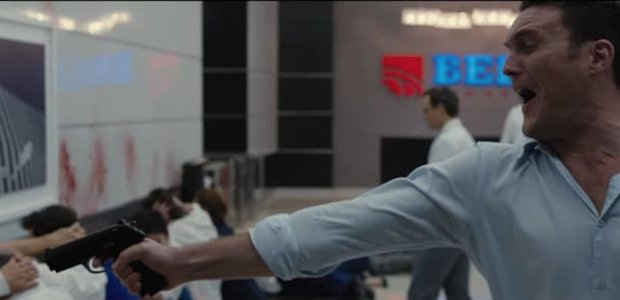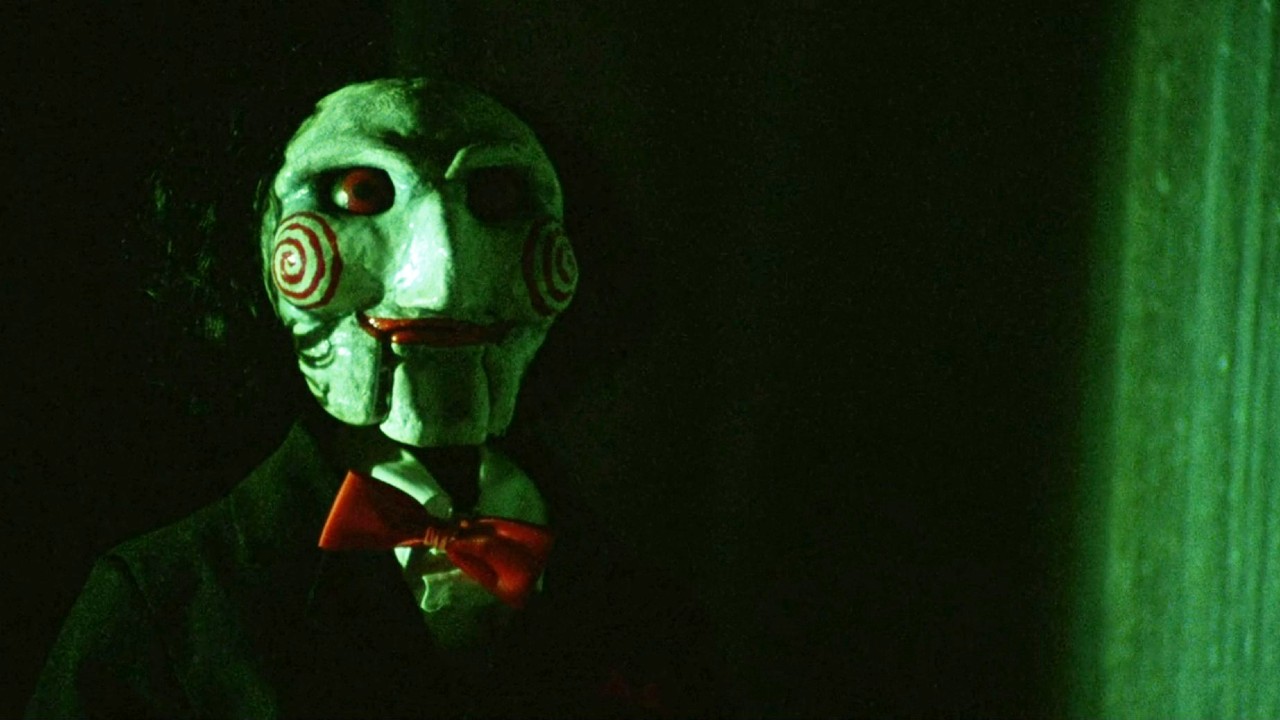The Belko Experiment plays with a very difficult line. As an extremely violent psychological thriller, it aims to push audiences to the edge of what they can emotionally withstand -- but that puts it in complicated territory. Without any other kind of value, the film would just be a collection of violent sequences strung together in a narrative, ultimately saying and meaning nothing, therefore making its actual existence questionable. Fortunately, these are waters that screenwriter James Gunn and director Greg McClean deftly navigate, not only challenging movie-goer limits with the horrific elements of the film, but their philosophical views and sensibilities as well.
Featuring very little set-up before jumping straight into the action, The Belko Experiment begins on what mostly seems like a normal day for the employees of Belko Corp., an office located down in Bogotá, Colombia. Unfortunately for these individuals, things get very un-normal very fast, as the building goes into full lockdown mode and a strange voice starts to play over the PA system. The 80 working men and women are told that an experiment has begun, and that they have a choice: kill a particular number of co-workers within an allotted time, or suffer the consequence of even more people dying completely at random (courtesy of explosives that have been implanted in everybody's necks).
It isn't the most original idea, as many of you may already be noting comparisons between it and the beloved Battle Royale, but this new film does deserve credit for its smart construction and engaging deep-thinking base. Seemingly taking inspiration from true cases like the Stanford Prison Experiment or the Milgram Experiment, The Belko Experiment is an exploration of human nature, and essentially asks its subjects how far they would personally go to stay alive. The result of this is that characters in James Gunn's script become representative of clashing philosophies: whether it's the social contract of Thomas Hobbes inspiring protagonist Mike Melch (John Gallagher Jr.); the John Stuart Mill concept of the greatest good for the greatest number motivating COO Barry Norris (Tony Goldwyn); or John Locke's selfish and violent view of humanity coming through in executive Wendell Dukes (John C. McGinley). They all wind up interplaying in engaging and thrilling fashion -- successfully not only leaving you questioning who is going to survive, but also how you yourself might behave if thrust into the exact same scenario.
More than just smart on paper, Greg McLean adapts James Gunn's script with extreme atmosphere and intensity -- though obviously it's all most definitely not for the faint of heart. The film isn't completely devoid of humor, with much of it coming from stoner cafeteria worker Marty (Sean Gunn), who has a seriously hard time accepting the actuality of his situation. But it's not satire. Instead, this is a movie that makes a clear point of establishing the realness of the world, and then manipulates that realness to highlight the extremeness of the high-concept plot. It's remarkably effective to the extent where the heat will surely limit the number of people who are able to stay in the kitchen -- but that's an extension of the film successfully being what it wants to be.
Smart as The Belko Experiment is, it is also a movie that is partially held back by its straightforwardness -- even as that straightforwardness aids its aforementioned reality. Over the course of the narrative, we see multiple stages play out within the titular study, but the only way that the situation escalates is through the number of people who are required to die and size of the time window in which the deaths need to happen. The "puppet masters" orchestrating everything don't add any new elements to the scenario with each passing deadline, which frankly feels like a missed opportunity given the natural structure provided. Add in the fact that the conclusion of the story doesn't quite pack the full punch that's required, and you do introduce some significant flaws into the mix -- but they aren't enough to totally derail the feature, as it still comes together as an engaging, frightening bit of cinema.
Those looking for a fun, relaxing time at the local multiplex may want to steer clear of The Belko Experiment on the big screen, but the movie is most certainly a genre film fan's delight: equal parts smart and mean. It's a cinematic experience of flinches, gasps, and clenched teeth that is designed to exhaust and entertain, and it succeeds in both.
Your Daily Blend of Entertainment News

Eric Eisenberg is the Assistant Managing Editor at CinemaBlend. After graduating Boston University and earning a bachelor’s degree in journalism, he took a part-time job as a staff writer for CinemaBlend, and after six months was offered the opportunity to move to Los Angeles and take on a newly created West Coast Editor position. Over a decade later, he's continuing to advance his interests and expertise. In addition to conducting filmmaker interviews and contributing to the news and feature content of the site, Eric also oversees the Movie Reviews section, writes the the weekend box office report (published Sundays), and is the site's resident Stephen King expert. He has two King-related columns.

